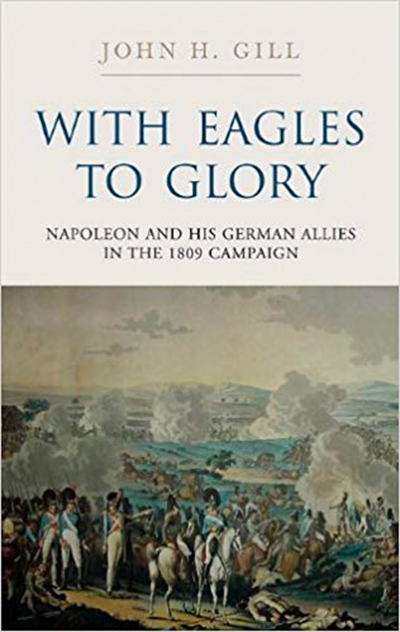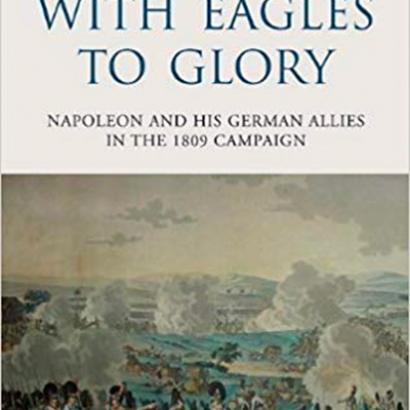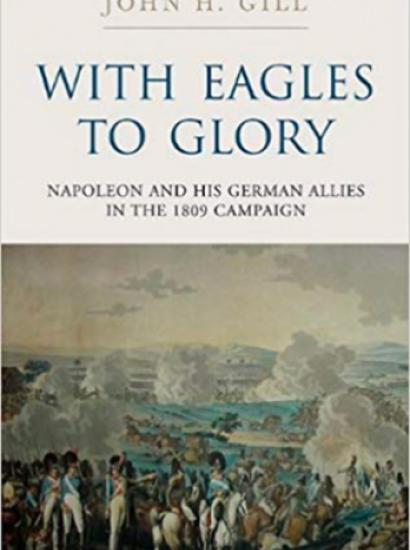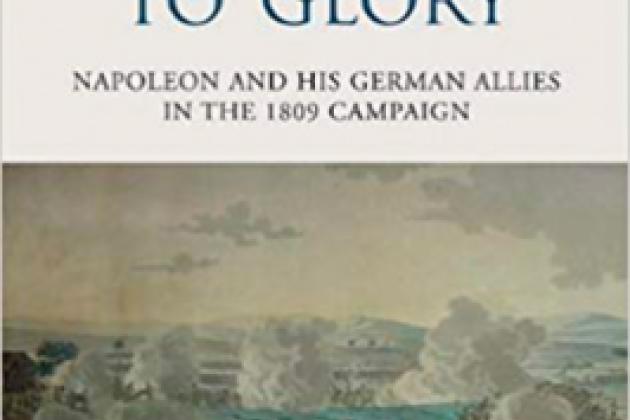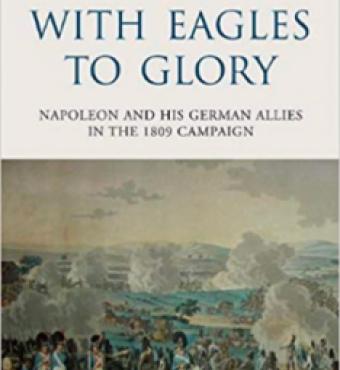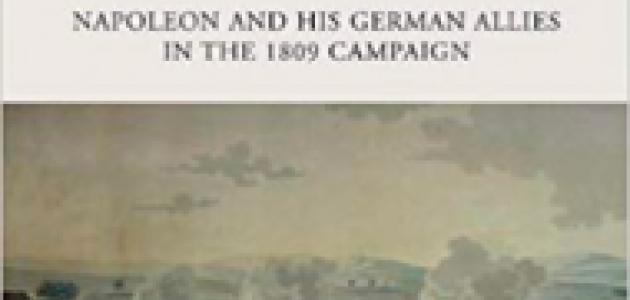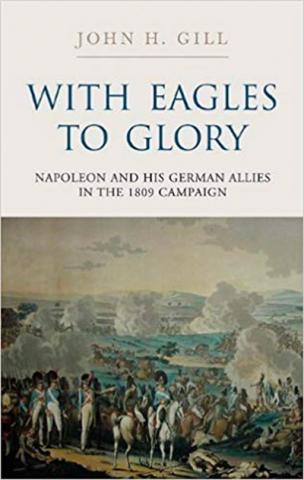- History
The acknowledged world expert on Napoleon’s 1809 campaign against Austria is the American historian John “Jack” H. Gill, author of the great Thunder on the Danube trilogy, which was published between 2008 and 2010. Sixteen years earlier, however, Gill had published his groundbreaking With Eagles to Glory, which utterly revolutionized the way historians viewed the campaign, putting Napoleon’s German contingents center stage in the struggle against the Hapsburgs and subsequently the repression of popular rebellions in the Austrian Empire.
The military contingents supplied to Napoleon by the many states that had been incorporated into the Confederation of the Rhine (Rheinbund) in 1806 ranged in number from twenty-nine men to thirty thousand, and they were involved in almost every engagement of the campaign, and certainly the four major battles of Abensberg, Aspern-Essling, Wagram, and Znaim, fought between April 20 and July 11, 1809.
Gill, a retired U.S. Army colonel and professor of the Near East South Asia Center for Strategic Studies in Washington, D.C., has walked all these major battlefields but also literally dozens of minor ones, down to the merest skirmish. There are over eighty maps, charts, and tables in this well-written and well-researched work. The meticulous research into every aspect of every one of Napoleon’s German contingents makes this work a model of scholarship as well as a classic of military history, which is found on the bookshelf of every serious student of the Napoleonic Wars.
The book opens with Napoleon’s Official Bulletin to his troops the day after the Battle of Abensberg, just as the campaign opened. “The fire of Heaven,” the Emperor proclaimed, “which punishes the ungrateful, the unjust, the disloyal, has struck the Austrian Army. It has been ground into dust, all its corps crushed.” They had not been, in fact, because they continued to resist vigorously for another three months, but it opens the book stirringly. “The troops provided by the Rheinbund,” wrote Gill in his Preface, “played a major role in Napoleon’s campaigns, fighting and dying under the Imperial Eagle from Spain’s arid hills to the ice-crowned walls of the Kremlin.”
The contribution made by France’s German satellite states had been grievously underestimated by historians before this book was published, perhaps in part because it was underestimated by Napoleon himself. Although Marshal Davout, the best soldier of all the marshalate, remarked that Napoleon could not have been better served than by the Rheinbund troops, who loyally supported a cause that was after all not their own, overall the Emperor tended to underplay the contribution made to his victories by his German troops, while overestimating that made by the French. Nobody has made the same mistake since the publication of With Eagles to Glory.







